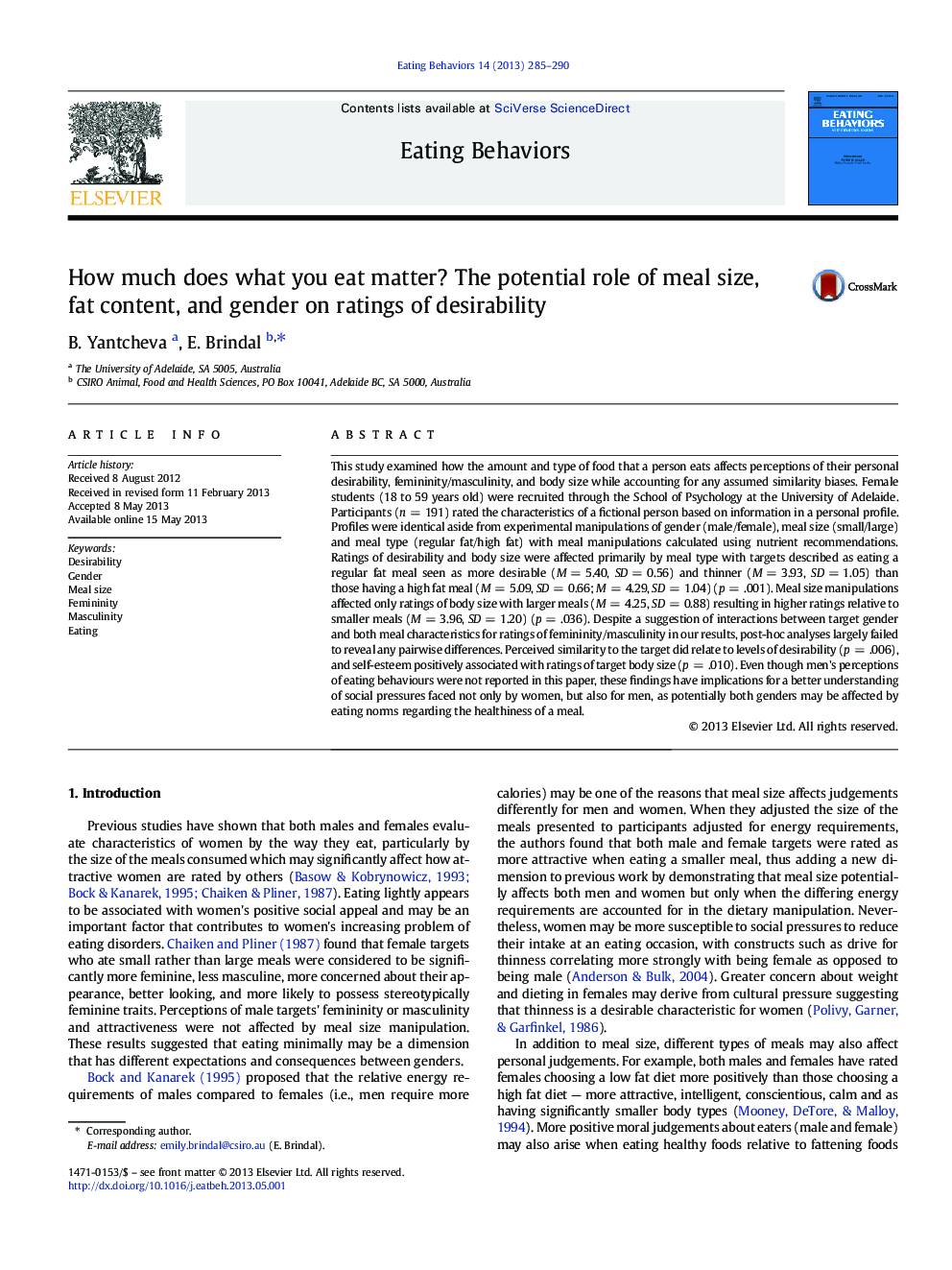| Article ID | Journal | Published Year | Pages | File Type |
|---|---|---|---|---|
| 906625 | Eating Behaviors | 2013 | 6 Pages |
•Meal size may be less important than fat content for personal judgments.•Consuming high fat meals may be associated with negative personal characteristics.•Eating behaviour affects ratings of both male and female eaters.
This study examined how the amount and type of food that a person eats affects perceptions of their personal desirability, femininity/masculinity, and body size while accounting for any assumed similarity biases. Female students (18 to 59 years old) were recruited through the School of Psychology at the University of Adelaide. Participants (n = 191) rated the characteristics of a fictional person based on information in a personal profile. Profiles were identical aside from experimental manipulations of gender (male/female), meal size (small/large) and meal type (regular fat/high fat) with meal manipulations calculated using nutrient recommendations. Ratings of desirability and body size were affected primarily by meal type with targets described as eating a regular fat meal seen as more desirable (M = 5.40, SD = 0.56) and thinner (M = 3.93, SD = 1.05) than those having a high fat meal (M = 5.09, SD = 0.66; M = 4.29, SD = 1.04) (p = .001). Meal size manipulations affected only ratings of body size with larger meals (M = 4.25, SD = 0.88) resulting in higher ratings relative to smaller meals (M = 3.96, SD = 1.20) (p = .036). Despite a suggestion of interactions between target gender and both meal characteristics for ratings of femininity/masculinity in our results, post-hoc analyses largely failed to reveal any pairwise differences. Perceived similarity to the target did relate to levels of desirability (p = .006), and self-esteem positively associated with ratings of target body size (p = .010). Even though men's perceptions of eating behaviours were not reported in this paper, these findings have implications for a better understanding of social pressures faced not only by women, but also for men, as potentially both genders may be affected by eating norms regarding the healthiness of a meal.
